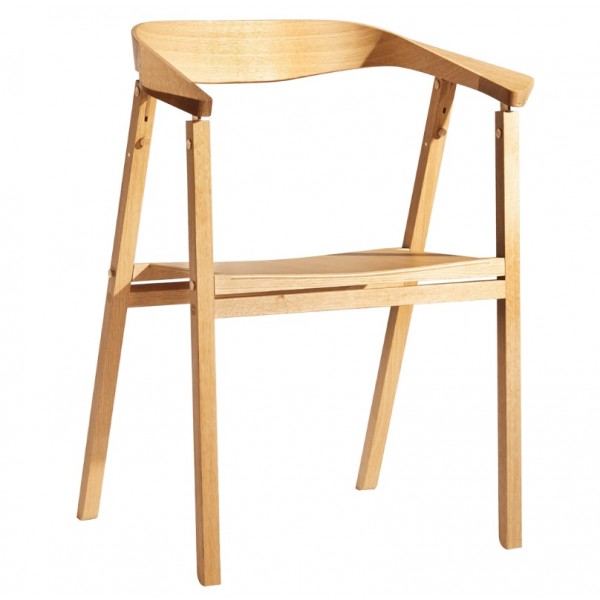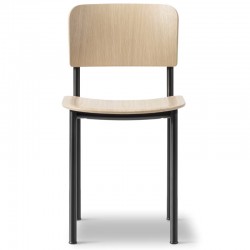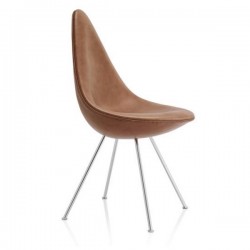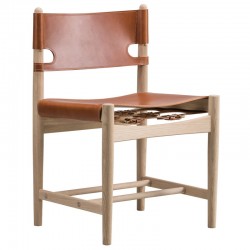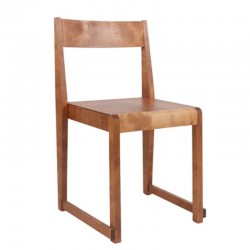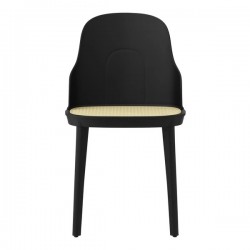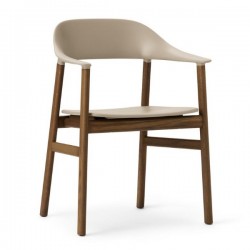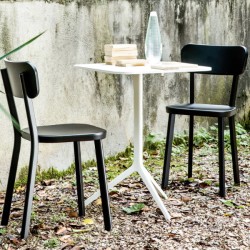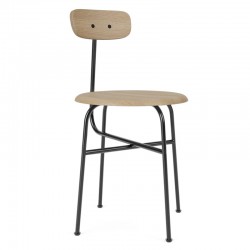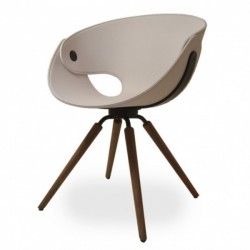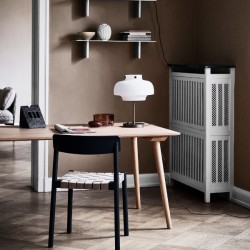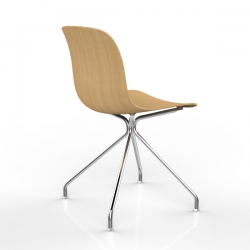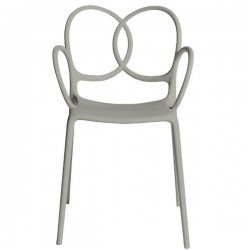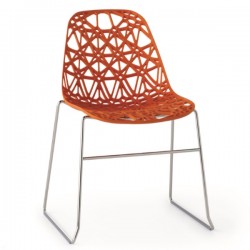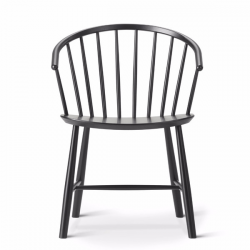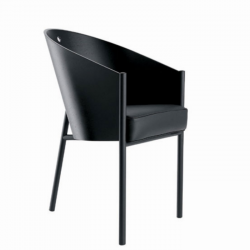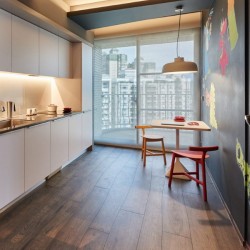Hence, the new D7 chair by Klemens Grund reflects Tecta’s way of thinking and constructing. It is kinetically foldable, modifiable, but there is also a rigidversion. Klemens Grund concealed the brass folding mechanism almost invisiblyin the back leg, rather as an attractive detail than out of technical necessity.“Most people are surprised that it is foldable, as if it were some kind of magictrick,” says the designer. And there is another hallmark of the D7 that demonstratesits affinity with Tecta: Like folding chair D4 by Marcel Breuer (of 1927), once folded and stacked against the wall, the D7 has an almost sculptural quality.
- Specifications
Armchair, frame: Natural oak, oiled, brass fitting
- Size Description
D7 W 65 D 50 H 80 Sh 45 Ah 70
DK7 Folding Chair W 65 D 50 H 80 Sh 45 Ah 70
-
Klemens Grund
<p>Klemens Grund (*1982) is Master carpenter. He studied design after completing his carpentry training. He worked with Peter Zumthor. The architectural constructive philosophy that is the hallmark of Tecta’s collection is also reflected in the work of Klemens Grund.</p>


 EUR
EUR

